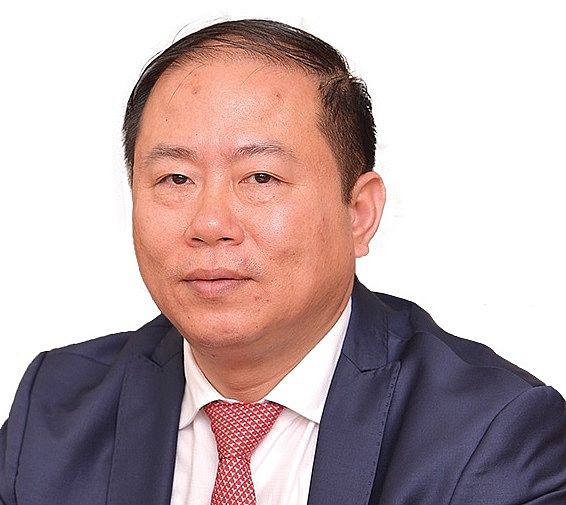Rail sector finding way back on track
Amid the current global health crisis, Vietnam Railways might be hard-pressed to maintain its 2020 targets. What are the latest impacts of the pandemic on the company’s operations this year?
 |
| Vu Anh Minh, chairman of the corporation |
According to a new analysis by the Asian Development Bank, the ongoing novel coronavirus pandemic will have a significant impact on developing Asian economies through numerous channels, including sharp declines in tourism and business travel, trade and production links, supply chains, and health effects.
In this situation, Vietnam is not an exception and the railway sector has been hit hard by the falling number of tourists.
According to a recent report, between January 25 to February 14, average revenue of passenger trains fell by 30 per cent on-year.
In addition, between January 25 and February 26, railway transport revenue hit VND418.98 billion ($18.21 million), down 32.5 per cent on-year.
We are working with our existing partners on possible measures to increase the volume of goods per train while seeking new ones to cover losses.
For instance, recently VNR and Vietnam National Chemical Group signed a co-operation agreement on the transportation of apatite, fertiliser, and chemicals in 2020. As planned, this year the volume is likely to hit 1.6 million tonnes, surpassing last year’s figure by 19.7 per cent.
Many other co-operation plans are under discussion, and will come into fruition in the near future.
However, if the fatal epidemic continues to develop more seriously, our revenue might fall by 10 per cent on-year.
For years, VNR has been facing difficulties amid stiffening competition with other means of transport. What is the reason, and how does VNR plan to tackle these issues in the future?
The current hurdles include outdated railway infrastructure and the low state budget for railways. Only 2 per cent of the total allocated sum for the transport sector goes to railways, which is not enough to cover maintenance expenses.
In recent years, we have taken a number of concrete measures to increase our operational efficiency in transportation, manufacturing, and logistics.
As such, we have been focusing more on increasing service quality by improving hygienic conditions on trains and introducing new cars.
Moreover, we have concentrated on increasing train operations on short and medium-length routes, instead of focusing on long routes as we did in the past. This has yielded some initial improvements.
We have also worked with international and domestic firms on co-operation programmes to improve our situation.
For example, in 2017, VNR signed a co-operation agreement with Saigon Newport Corporation (SNP) to develop inland container depots (ICD) and warehouses at Song Than station in the southern province of Binh Duong and Dong Anh station in Hanoi. VNR is also working with other private investors to build ICDs at the stations in Yen Vien, Dong Dang, Danang, and Vinh.
However, these efforts are blocked by legal barriers, although the Law on Railway 2017 has seen some improvements.
We are waiting for the government’s approval of the draft master plan in line with 2018’s Decree No.46/2018/ND-CP governing the management and use of railway infrastructure assets, thus enabling us to take the next steps with our projects with SNP and other partners.
At present, the Ministry of Transport is still working on this.
More importantly, we have been working on our new restructuring plan since 2017. This will be an important legal framework for us to solve the existing problems in our apparatus and operations, thus increasing competitiveness and gaining market share.
However, the approval of the plan has been delayed for years, causing many difficulties for us to improve our operations.
What is VNR focusing on to increase operational efficiency and attraction for private investors?
While waiting for the approval of the restructuring and master plans, we continue to work on measures to improve service quality and increase efficiency.
Moreover, we work on flexible adjustments of ticket fares to attract passengers, and co-operation with tourism companies, travel agents, and industrial parks to increase the number of passengers, while promoting international transportation and working on new cooperation programmes with giants to increase the volume of goods by train.
However, none of our efforts could speed up trains unless all the impediments are dealt with.
Regarding the attraction of private investment, in recent years, foreign investment in the railway industry has remained modest, not only in Vietnam. Generally, attracting foreign investment to the railway industry is a challenge.
Recently, a number of foreign railway businesses have expressed interest in doing business with us. They include EVRAZ from Russia, the world’s number one producer of rails, Russia Export Centre Group, and others.
We hope that when all the barriers are lifted, we will have more opportunities to co-operate with domestic and international partners.
What the stars mean:
★ Poor ★ ★ Promising ★★★ Good ★★★★ Very good ★★★★★ Exceptional
Related Contents
Latest News
More News
- State corporations poised to drive 2026 growth (February 03, 2026 | 13:58)
- Why high-tech talent will define Vietnam’s growth (February 02, 2026 | 10:47)
- FMCG resilience amid varying storms (February 02, 2026 | 10:00)
- Customs reforms strengthen business confidence, support trade growth (February 01, 2026 | 08:20)
- Vietnam and US to launch sixth trade negotiation round (January 30, 2026 | 15:19)
- Digital publishing emerges as key growth driver in Vietnam (January 30, 2026 | 10:59)
- EVN signs key contract for Tri An hydropower expansion (January 30, 2026 | 10:57)
- Vietnam to lead trade growth in ASEAN (January 29, 2026 | 15:08)
- Carlsberg Vietnam delivers Lunar New Year support in central region (January 28, 2026 | 17:19)
- TikTok penalised $35,000 in Vietnam for consumer protection violations (January 28, 2026 | 17:15)

 Tag:
Tag:




















 Mobile Version
Mobile Version